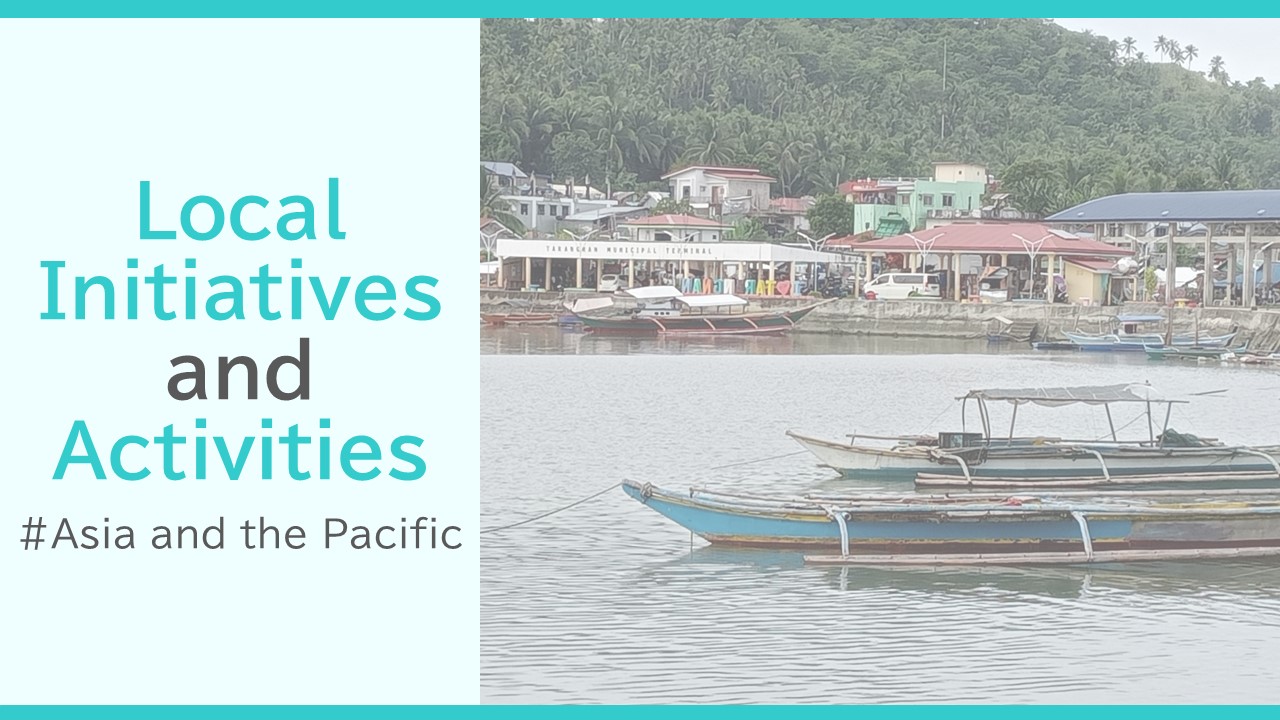
Towards Sustainable and Inclusive Community Building (Vol.1)
The Project to Promote Inclusive Communities for Sustainable Development, which has been organised and implemented by the Asia-Pacific Cultural Centre for UNESCO (ACCU) since 2022, has conducted a series of case studies and knowledge-sharing initiatives both domestically and internationally. The project explores how inclusive communities can be realised and promoted through the collaboration of diverse stakeholders, including schools, governments, private companies, and civil society. As the project enters its third year of implementation, we would like to share its achievements to date and outline our future plans for activities.
The project is funded by the Japanese Ministry of Education, Culture, Sports, Science, and Technology (MEXT) as part of the UNESCO Future Co-creation Platform programme. ACCU is responsible for the overall planning and management of the project, collaborating with various partners such as the Aikawa Project in Japan―an inclusive school development project―, the Association for Aid and Relief, Japan in Cambodia―a project promoting inclusive education―, as well as the People’s Initiatives for Learning and Community Development (PILCD) in the Philippines―a community-based capacity-building project for disaster risk reduction and climate change adaptation.
In the first year of the project (JFY2022), ACCU conducted site visits to the participating countries to gain a more intricate understanding of each organisation’s inclusive initiatives and projects. A preliminary framework for inclusion was then collaboratively formulated by the participating organisations at the regional meeting organized in January 2023 in Phnom Penh, Cambodia.
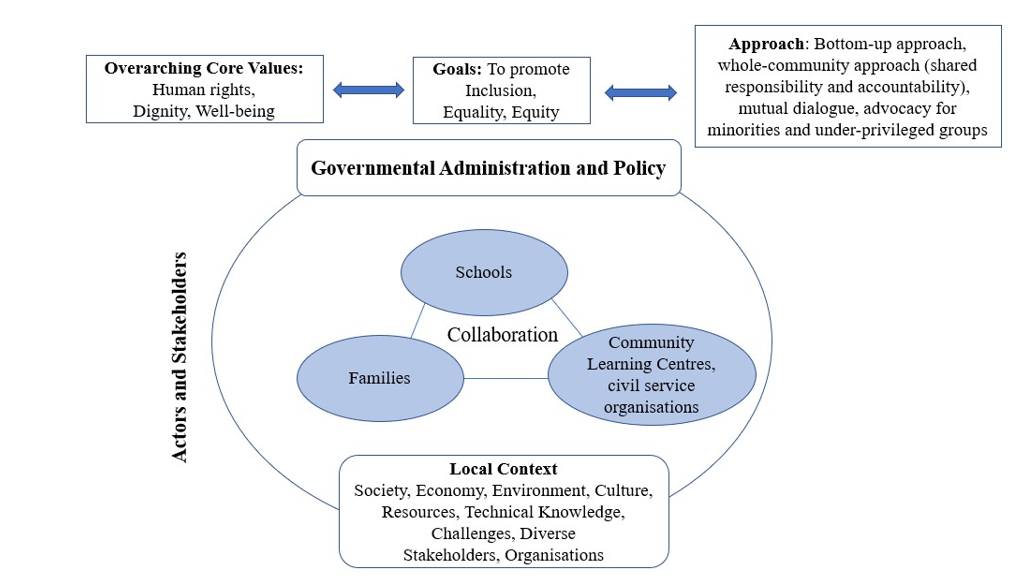
Figure: Framework for Initiatives Aimed at Promoting Inclusive Communities for Sustainable Development
In the second year (JFY2023), each organisation conducted action research for their respective inclusive project with the aim of testing the aforementioned framework. All partners and ACCU gathered in Calbayog City, the Philippines, in November 2023 for a regional meeting to share and discuss their action research findings. An advocacy forum was also held, to which a wide range of community stakeholders were invited. Action research continued in various regions thereafter, with a final report meeting in March 2024.
Additionally, as part of the regional meeting, participants were given the opportunity to visit Bogongon Island to observe how PILCD’s project on inclusion is currently being implemented. The project addresses disaster risk reduction and community capacity building against climate change through fisheries, aquaculture, and fish processing technologies.
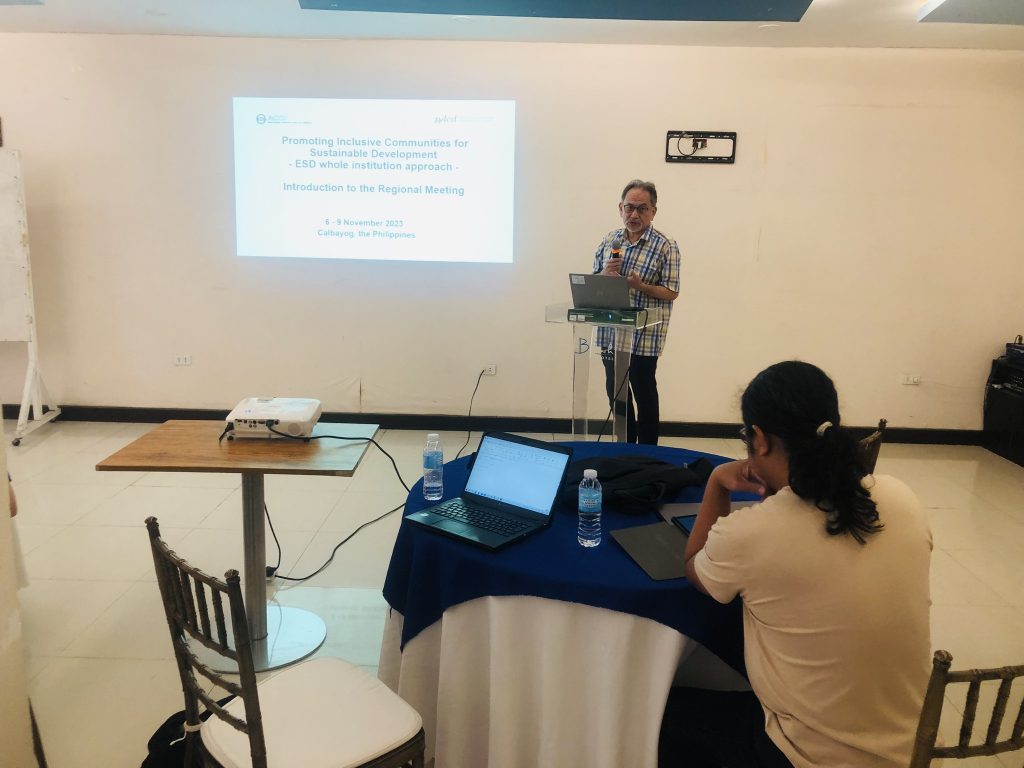
ACCU delivering the opening remarks for the regional meeting
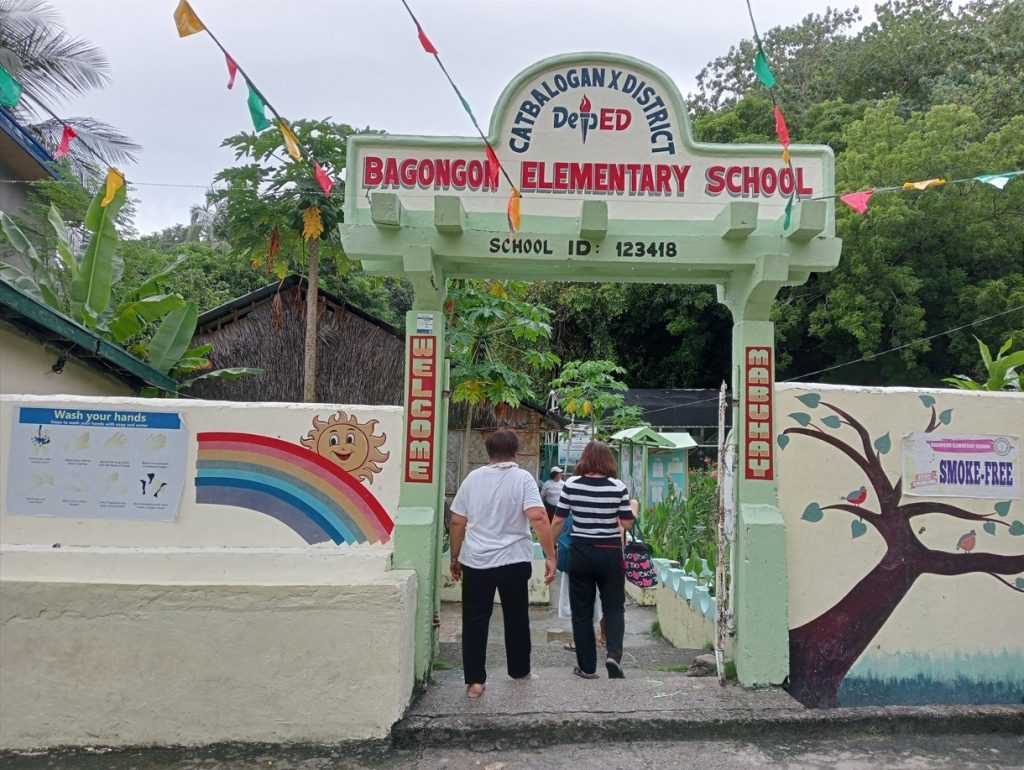
Visit to Bagongon Elementary School
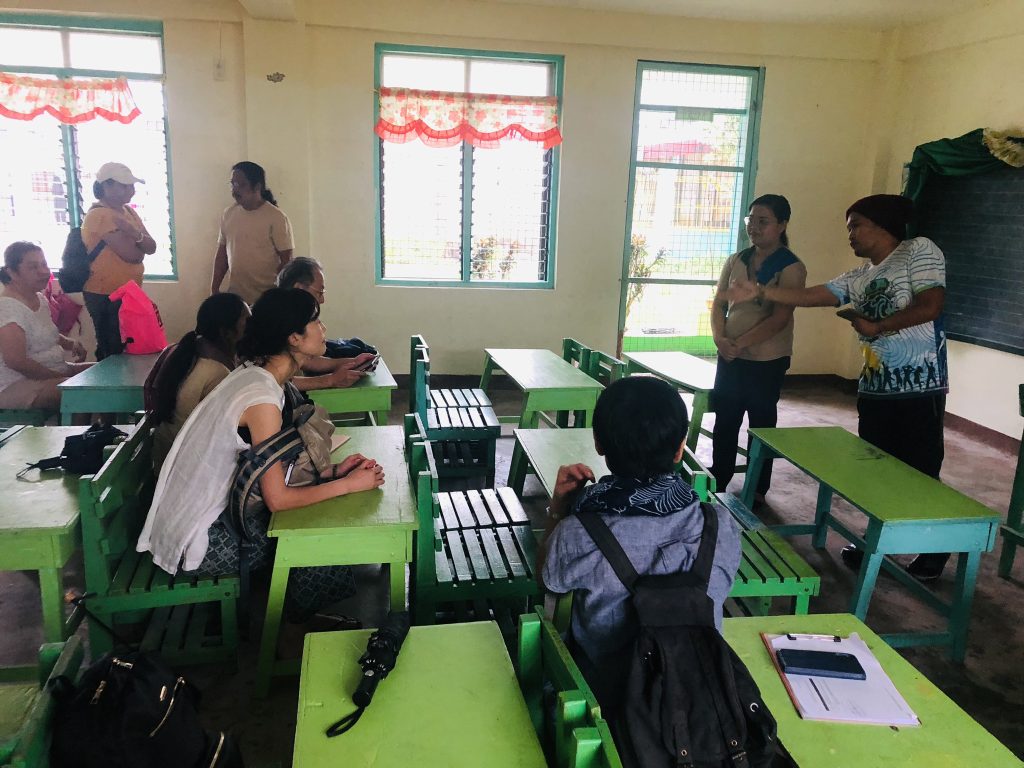
Participants engaged in a dialogue with a teacher at Bagongon Elementary School about their inclusive initiatives
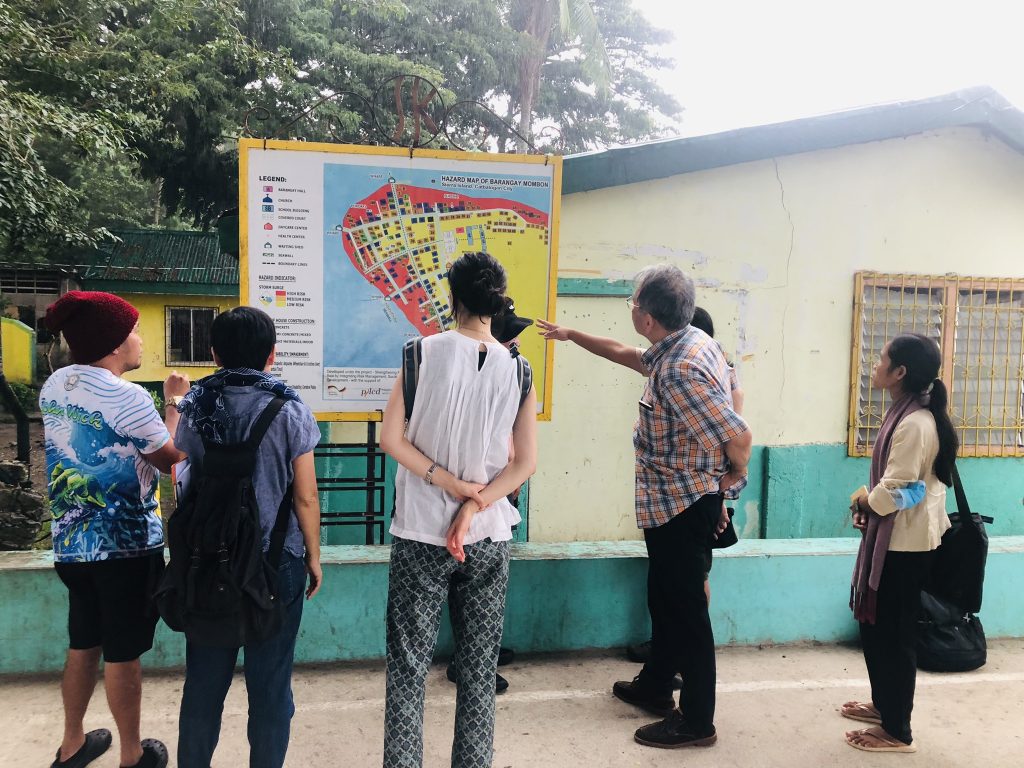
Looking at a hazard map on Bagongon Island that displays where individuals with disabilities reside
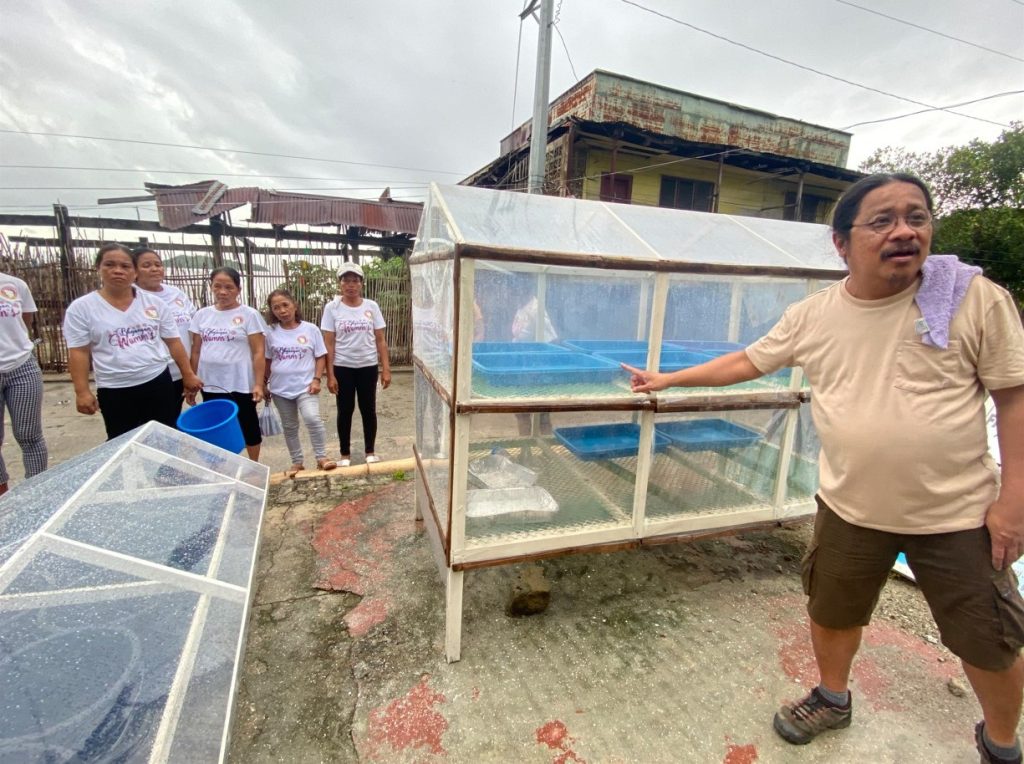
Mr. Ramon Mapa, the director of PILCD, introducing a fish-smoking and salt-making facility
The comments from a representative of each participating organisation
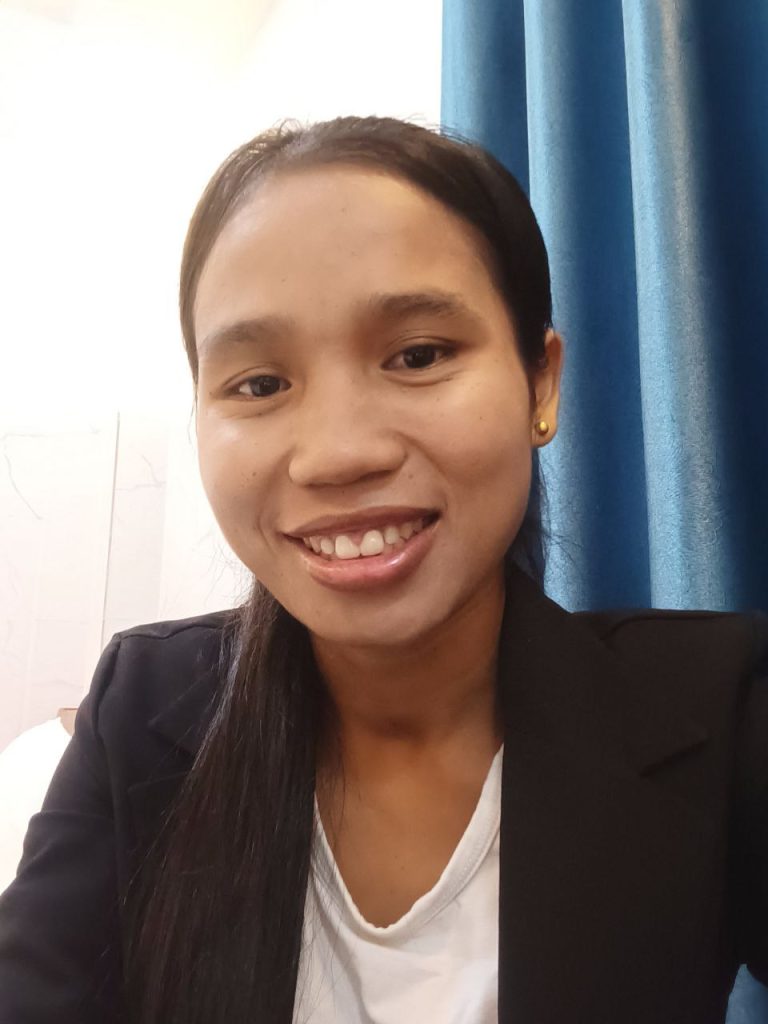
Ms. Rina Em, the Association for Aid and Relief, Japan (Phnom Penh Office, Cambodia)
Project Title: Promotion of Inclusive Education for Children with Disabilities (CWDs)
In the Philippines, I enjoyed learning new things such as PILCD activities. I observed they tried to strengthen resilience in the community to help community members achieve a quality of life. They produced smoke fish machines and materials for producing salt together. Furthermore, the community was involved in creating a hazard map that also shows people with high risk. I will try to think about my community—what resilience it has, what resources are available, and what they can do realistically. Among the AAR team, I will share the learning from the Philippines and work together to support the target community of our project. In the community, AAR will join discussions with stakeholders, try to find their strengths, and continue working to support the community in achieving wellbeing.
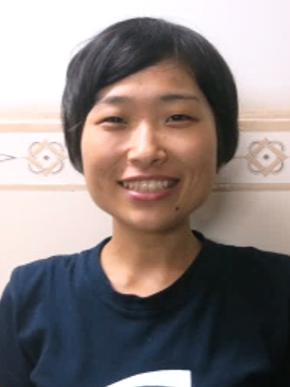
Ms. Satomi Mukai, the Association for Aid and Relief, Japan (Phnom Penh Office, Cambodia)
Through presentations by each practitioner, we learned that every country faces unique challenges in different contexts, and each is developing strategies to address them by identifying the relevant stakeholders and available resources. In addition to gaining ideas for activities that can be implemented in Cambodia (such as creating a resource map for the region), questions from the participants (such as whether the role of parents is clear, and how to address children’s independence as the ultimate beneficiaries) provided an opportunity to reflect on the efforts made so far. We would like to shape our responses to these questions and ideas by engaging with local residents.
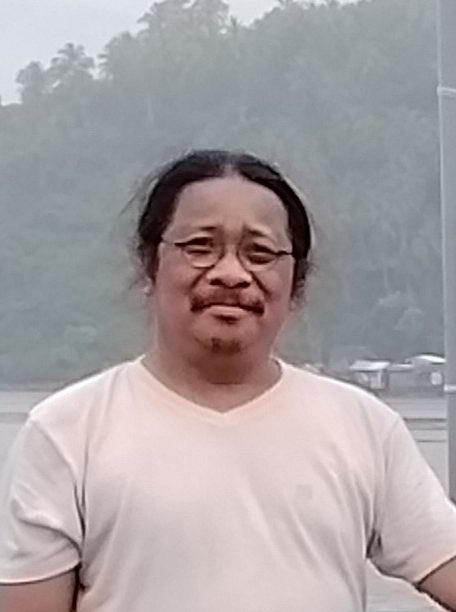
Mr. Ramon G. Mapa, the People’s Initiative for Learning and Community Development (the Philippines)
Project Title: Inclusive resilience: Promoting the Integration of Risk Management and Social Inclusion in Socioeconomic Development
The regional meeting was very significant and insightful for us because it brought together different organizations promoting inclusion and sustainability from varying contexts. The exchanges, questions and feedback we gathered in sharing our project experiences remind us of the importance of reflecting on our current practices. Specifically, our take from the regional meeting are as follows:
- Sharing experiences and taking feedback from other people and organizations can provide insights into what did not work well, that we may have missed in the process – outsiders’ perspective is significant. This could help us identify areas of weakness that we overlooked. The sharing of other groups and individuals with similar experiences will also help in learning from failures and challenges and provide insights on how to address these. This sharing of experiences encourages adaptive learning, allowing individuals and organizations to adjust their strategies in response to changing circumstances or emerging challenges.
- Learning from diverse experiences helps in understanding the cultural, social, and contextual factors that influence the outcome of any sustainable development initiatives. This understanding is crucial for designing programs and activities to specific groups and communities.
- The regional meetings provide a platform for future collaboration among diverse stakeholders. Multi-stakeholder and cross-sectoral collaboration is crucial in addressing the multifaceted challenges associated with inclusion and sustainable development.
In the final year of the project (JFY2024), based on the results of each partner organisation’s action research, the Sustainable and Inclusive Community Building Framework will be compiled into a resource pack to be produced and widely shared for practitioners involved in similar projects. Stay tuned for updates on this project!
This article was originally released in Japanese on April 3, 2024. (https://unesco-sdgs.mext.go.jp/column/local-initiatives-20240403)
DATA
| Project Title | Promoting Inclusive Communities for Sustainable Development(UNESCO Future Co-creation Platform Project) |
|---|---|
| Organization | Asia-Pacific Cultural Centre for UNESCO (ACCU) |

Mr. Shinichi Takisaka, the Aikawa Project
Project Title: Development of ‘A Local School’ where Children Living in the Community Learn and Grow Together
It has been 30 years since the United Nations proposed and began working on an “a society for all.” The core philosophy behind this initiative is that “the needs of all citizens constitute the basis for planning and policy.” It calls for a fundamental shift in mindset and requires sustained efforts from individuals, society, governments, and other stakeholders. Schools are social structures designed to reflect the perceptions that circulate within society. At the same time, every individual has their own ‘way of being’ or ‘way of wanting to be’ in daily life, which may differ from the established system and social reality. This meeting provided an opportunity to reaffirm the importance and challenges of reconciling these differences, while making continuous efforts toward an inclusive society. It also explored how each individual can engage with this process within the context of their local community.